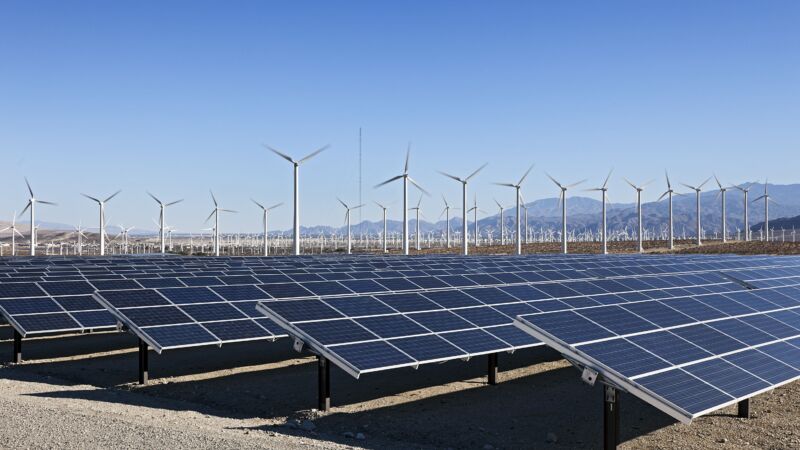Review of the credits available for alternative energy sources.
In recent years, the U.S. and other countries around the world have placed a growing emphasis on sustainability and green energy. To encourage this shift, the IRS offers a range of renewable energy tax credits for alternative energy sources like solar, wind, and geothermal power.
For accountants, understanding renewable energy tax credits and how they relate to individuals and businesses is essential in helping clients maximize their tax benefits. Let’s take a look at how these tax incentives encourage the adoption of clean energy practices and how accountants can support their clients in making this shift.
Jump to ↓
| How do renewable energy tax credits work? |
| What renewable energy tax incentives does the IRS offer for individuals vs. businesses? |
| Overview of clean energy credits by energy type |
| Helping clients with renewable energy credits |
How do renewable energy tax credits work?
Renewable energy tax credits incentivize the adoption of eco-friendly energy sources, benefiting both the environment and the economy.
By allowing taxpayers to subtract a certain percentage of their qualified expenditures on renewable energy systems from their federal income taxes, renewable energy tax credits result in a reduction of tax liability, thus making sustainable choices more financially appealing to individuals and businesses.
Accountants should encourage their clients to review all IRS requirements and qualifications prior to purchasing energy efficient equipment. It is also important to remember that there are various state incentives for adopting renewable energy as well.
What renewable energy tax incentives does the IRS offer for individuals vs. businesses?
The Inflation Reduction Act of 2022 includes a variety of tax provisions aimed at saving families money on their energy bills and accelerating the deployment of clean energy, vehicles, buildings, and manufacturing for businesses.
Energy Efficient Home Improvement Tax Credit
The Energy Efficient Home Improvement Credit is available for taxpayers who make qualified energy-efficient improvements to their homes after Jan. 1, 2023.
The credit equals 30% of certain qualified expenses, up to $3,200, including:
- Qualified energy efficiency improvements installed during the year
- Residential energy property expenses
- Home energy audits
Taxpayers can claim the Energy Efficient Home Improvement Credit for improvements made through 2032 by filing Form 5695, Residential Energy Credits Part II, with your tax return. You must claim the credit for the tax year when the property is installed, not merely purchased.
Residential Clean Energy Tax Credit
If you invest in renewable energy (i.e., solar, wind, geothermal, fuel cells or battery storage technology), you may qualify for an annual Residential Clean Energy Credit. This credit equals 30% of the costs of new, qualified clean energy property for your home installed anytime from 2022 through 2032.
The credit has no annual or lifetime dollar limit except for credit limits for fuel cell property. You can claim the annual credit every year that you install eligible property until the credit begins to phase out in 2033.
In addition, taxpayers who install qualified vehicle refueling and recharging property in their home or business may qualify for the alternative fuel refueling property tax credit. The credit was extended and modified by the Inflation Reduction Act and is based on the placed-in-service date for the qualifying property.
Business energy tax credits
The Business Energy Investment Tax Credit (ITC) and Renewable Energy Production Tax Credit (PTC) allow businesses to deduct a percentage of the cost of renewable energy systems from their federal taxes. These credits are available to taxable businesses entities and certain tax-exempt entities eligible for direct payment of tax credits. Certain projects are eligible for either the ITC or PTC, but not both.
Starting January 1, 2025, the Inflation Reduction Act replaces the traditional PTC with the Clean Energy Production Tax Credit and the traditional ITC with the Clean Electricity Investment Tax Credit. These tax credits are functionally similar to the ITC/PTC but are not technology specific. They apply to all generation facilities (and energy storage systems under ITC) that have an anticipated greenhouse gas emissions rate of zero.
The credit amount is generally calculated in the same manner but will be phased out as the U.S. meets greenhouse gas emission reduction targets.
Manufacturers and other entities that invest in qualifying advanced energy projects may apply for a tax credit through the Department of Energy. A total of $10 billion has been allocated for the credits under the Inflation Reduction Act, with $4 billion set aside for projects in certain energy communities over the duration of the program.
Overview of clean energy credits by energy type
If you make qualifying energy improvements to your home, tax credits are available for a portion of qualifying expenses. Homeowners who improve their primary residence will find the most opportunities to claim credits for qualifying expenses. Renters may also be able to claim credits, as well as owners of second homes used as residences.
You can claim either the Energy Efficient Home Improvement Credit or the Residential Energy Clean Property Credit for the year you make qualifying improvements.
Geothermal tax credit
Geothermal energy, which is harnessed from the Earth’s internal heat, can be eligible for a tax incentive. Accountants should be aware of the qualifying criteria, including the use of a geothermal heat pump that meets Energy Star requirements for heating or cooling a home.
Solar power tax credit
Solar water heaters and solar panels can qualify for solar tax credits, however, they must be certified by the Solar Rating Certification Corporation or a comparable entity endorsed by your state. Accountants should guide clients through the eligibility criteria to ensure requirements are met.
Wind power tax credit
Qualified expenditures on wind energy systems can be eligible for tax credits. Accountants should keep clients informed about the eligibility requirements to ensure tax incentives are maximized.
Biomass tax credit
Biomass, including biofuels and biomass stoves, are recognized by the IRS for tax credits. Biofuels, considered second-generation biofuel producers, are eligible for specific credits. Accountants should guide clients through the various forms and criteria associated with biomass tax credits, ensuring compliance and optimal tax savings.
Helping clients with renewable energy credits
Accountants play a pivotal role in helping clients navigate the complex and ever-changing landscape of renewable energy tax credits.
Beyond providing accurate information on available credits, accountants should actively engage with clients to identify opportunities for sustainable investments. This includes staying updated on changes in IRS tax laws and guidance, so clients can maximize their tax benefits while benefiting the environment.
As green tax initiatives continue to take center stage, accountants can become a helpful guide for clients in making environmentally conscious decisions on adopting geothermal, solar, wind, and biomass energy sources that also make good financial sense.
With legislation constantly evolving, staying abreast of topics like electric vehicle tax credits can be complex. By understanding the details of these tax credits at both the state and federal levels, you can help your clients make informed decisions that save them money and support the environment.
Stay up to date with changing regulations around renewable energy and other green tax initiatives with Thomson Reuters Checkpoint Edge, a cutting-edge tax research tool informed by 680+ highly-qualified editors and outside practitioners.
Additionally, Thomson Reuters ESG solutions, including Checkpoint ESG Toolkit, helps equip tax, corporate, risk, and legal professionals to navigate environmental-related tax credits and incentives while ensuring compliance.

ESG solutions
Expert tools to navigate environmental, social, and governance challenges
Learn more ↗








